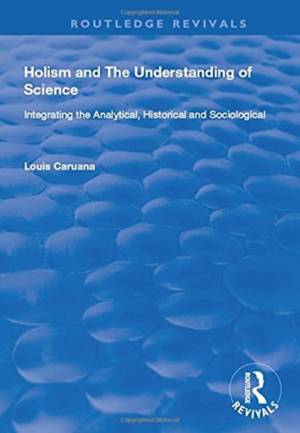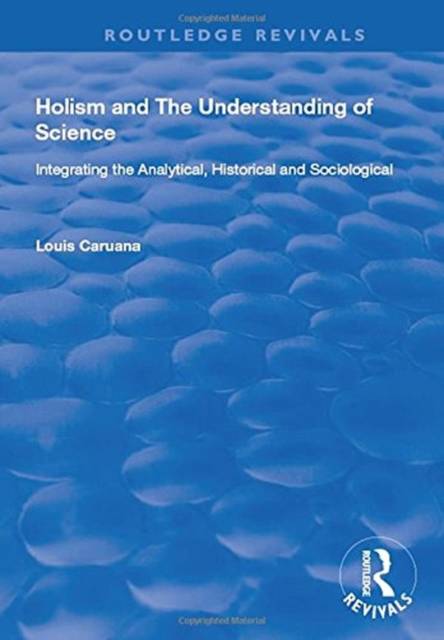
- Afhalen na 1 uur in een winkel met voorraad
- Gratis thuislevering in België vanaf € 30
- Ruim aanbod met 7 miljoen producten
- Afhalen na 1 uur in een winkel met voorraad
- Gratis thuislevering in België vanaf € 30
- Ruim aanbod met 7 miljoen producten
Zoeken
Holism and the Understanding of Science
Integrating the Analytical, Historical and Sociological
Louis Caruana
€ 148,95
+ 297 punten
Omschrijving
This title was first published in 2000: This book addresses issues which are central in the philosophy of science, exploring a large and relevant literature. It should be of broad interest in the philosophy of science community." Professor Peter Lipton, Department of History and Philosophy of Science, University of Cambridge, UK. How can the complexities of understanding science be dealt with as a whole? Is philosophical realism still a defensible philosophical position? Exploring such fundamental questions, this book claims that science ought to be understood in terms of universal practices and that such an understanding supports an attractive version of scientific realism. Holism is attracting renewed scholarly attention but is still loosely used in a range of different contexts, from semantics to medicine. This book presents a detailed philosophical analysis of holism, concentrating on two complementary aspects of holism - cognitive and social - to investigate its relevance to science studies. Bridging the gap between analytical, historical and sociological accounts of science, Caruana draws together results from recent research by Davidson, Dummett, Quine, Wright and others, on Wittgenstein's later philosophy. Demonstrating that holism, both cognitive and social, is not only essential for a full understanding of science but also compatible with a particular version of scientific realism, this book presents important new perspectives for the philosophers of science and scholars of the history of science in particular. Louis Caruana is Assistant Lecturer in Philosophy of Science and Nature at the Gregorian University, Rome, Italy.
Specificaties
Betrokkenen
- Auteur(s):
- Uitgeverij:
Inhoud
- Aantal bladzijden:
- 182
- Taal:
- Engels
- Reeks:
Eigenschappen
- Productcode (EAN):
- 9781138734937
- Verschijningsdatum:
- 3/11/2017
- Uitvoering:
- Hardcover
- Formaat:
- Genaaid
- Afmetingen:
- 152 mm x 219 mm
- Gewicht:
- 340 g

Alleen bij Standaard Boekhandel
+ 297 punten op je klantenkaart van Standaard Boekhandel
Beoordelingen
We publiceren alleen reviews die voldoen aan de voorwaarden voor reviews. Bekijk onze voorwaarden voor reviews.











